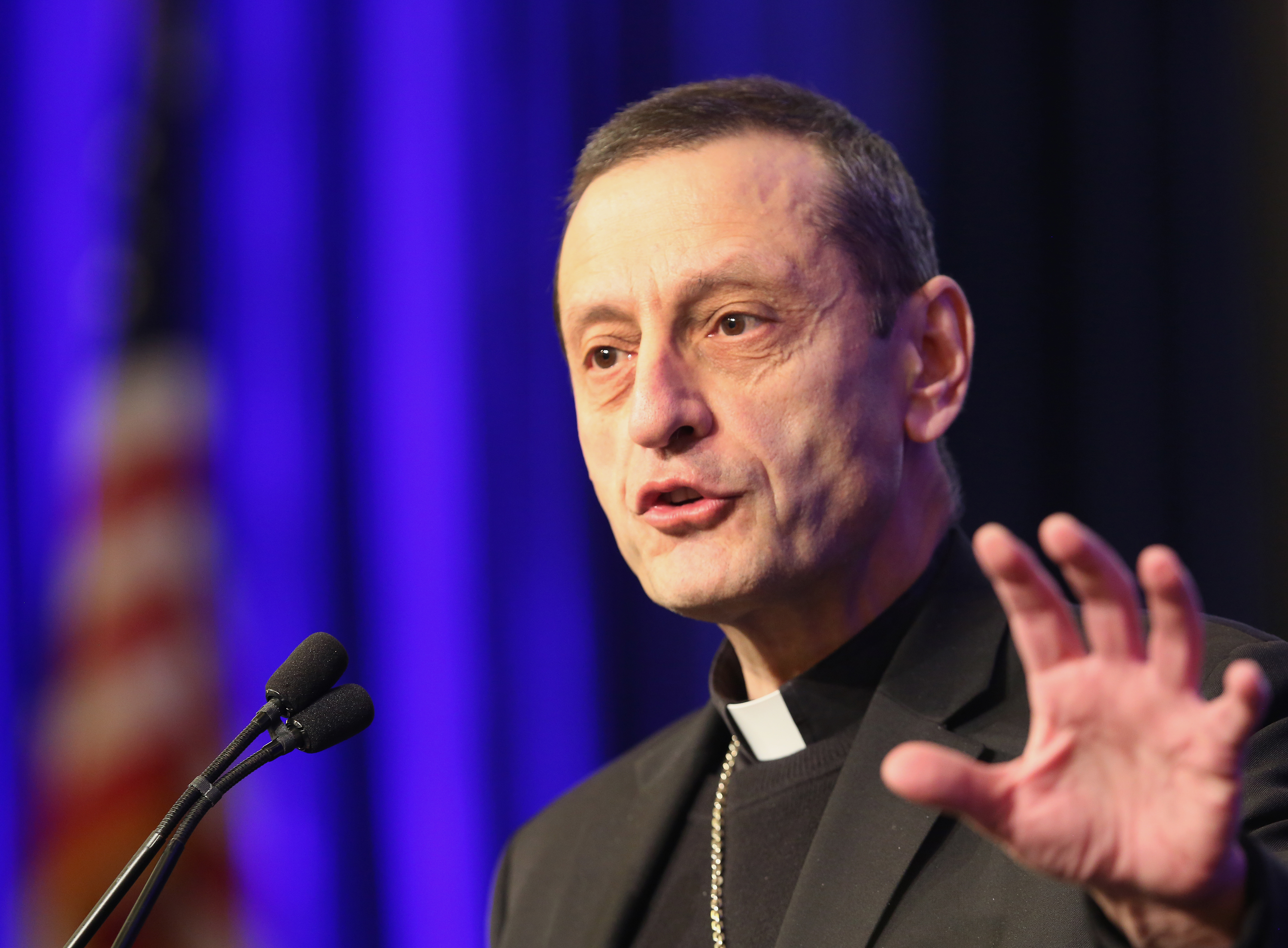By Elise Harris and John L. Allen Jr.

ANAHEIM, Calif. (Crux) – In his debut at America’s largest annual Catholic gathering, one of the rising stars of the U.S. hierarchy warned that full recovery from the clerical abuse scandals, including a new style of leadership in the Church, will be a “generational” task.
“We’ll be at this for a while,” said Bishop Frank Caggiano of Bridgeport, Conn., who made a splash at last fall’s Synod of Bishops in Rome with his blunt, forceful language on the abuse crisis.
“We have become a society that sees everything in terms of power, as an authority or force over you, rather than a service in support of you, which is what the Lord defines authority and power,” Bishop Caggiano said in a March 22 interview with Crux.
You’re Going to Need Saints
“That’s going to be a generational amount of work to get to,” he said. “You’re going to need the few saints to lead the rest of us to figure out how to do it.” Bishop Caggiano was speaking on the margins of the Los Angeles Religious Education Congress, an annual gathering held at the Anaheim Convention Center that regularly attracts in excess of 30,000 youth, catechists, religion teachers and other leaders in the Church.
The Bridgeport prelate, who’s originally from Brooklyn, was on hand to deliver two talks, one to youth and another to catechists, before taking a red-eye flight back to his diocese March 23 to preside over a confirmation ceremony.
In his conversation with Crux, Bishop Caggiano stressed the need not just for improved structures and procedures to combat clerical abuse, but also “spiritual conversion.”
“If the sexual abuse crisis is, in part, an abuse of power, there is no mandate, procedure or process on earth that can avoid an abuse of power unless there’s a change of heart, a change in priority, a change in the way we exercise leadership, and the spirit with which you exercise leadership,” he said.
“I mean episcopal leadership, pastoral, lay leadership, leadership in families … there has to be a change,” Bishop Caggiano said.
Right now, Bishop Caggiano said, reform is happening in fits and starts among communities that foster both hope and joy in the Christian life despite the pain, which he described as characteristic of how the Church works.
The Centrality of the Cross
In terms of a spiritual response, Bishop Caggiano emphasized the centrality of the cross.
“It’s the cross that is both the symbol of our salvation and the hope to forgive sin, eventually to heal even the wounds of sin,” he said.
Acknowledging the anger many Catholics feel about the scandals, Bishop Caggiano said in some ways it’s a positive force.
“The anger is a righteous anger most of the time, because you’re seeing justice and that should not be diminished. Even Jesus was angry in the temple,” he said.
“Anger gives birth to two daughters, courage and hope – courage to change what’s wrong, and hope to believe it can be better,” Bishop Caggiano said. “I think the anger itself can be a gift, but you can’t stay there forever. You’ve got to move on to the courage and the hope, and that’s the cross in my mind.”
The 59-year-old prelate, who routinely figures on informal handicapping lists for bigger jobs someday, said the crisis has forced the Church to be more honest about itself.
“In my mind, we have veneers in life. The modern world is filled with them, and things are not what they appear to be,” he said.
“The abuse crisis, because it is so profound, so ugly, so humiliating, there are no veneers we can stand behind anymore,” Bishop Caggiano said. “It’s just the truth. When you do that, you can really begin to heal, you can begin to change.”
After his first experience of the Los Angeles Religious Education Congress, which dates back to 1967, he described it as a “phenomenon.”
Microcosm of the Church
“This is a national religious congress, not an L.A. religious congress,” he said.
“Here there’s a microcosm of the whole Church. You have those who are very much in the apologetic mode, teaching the faith and the truth of the faith. There are others who are much more in the social justice and social gospel mode. You have others who are more into the liturgical and spirituality side,” Bishop Caggiano said.
“In a sense, it’s like highlighting the different pieces of who we are. I think there’s something for everybody,” he said.

This is very heartening. I am inspired by Bishop Frank and fortunate to be in his diocese as a member of St. Catherine of Siena Parish in Riverside.